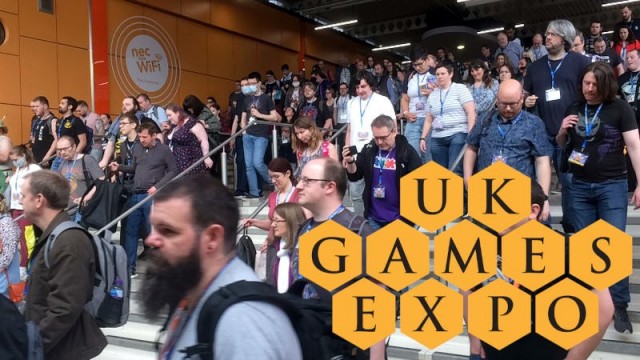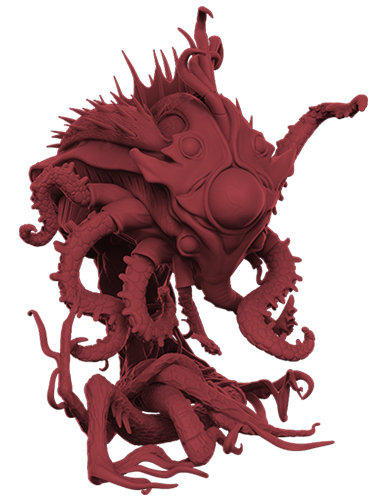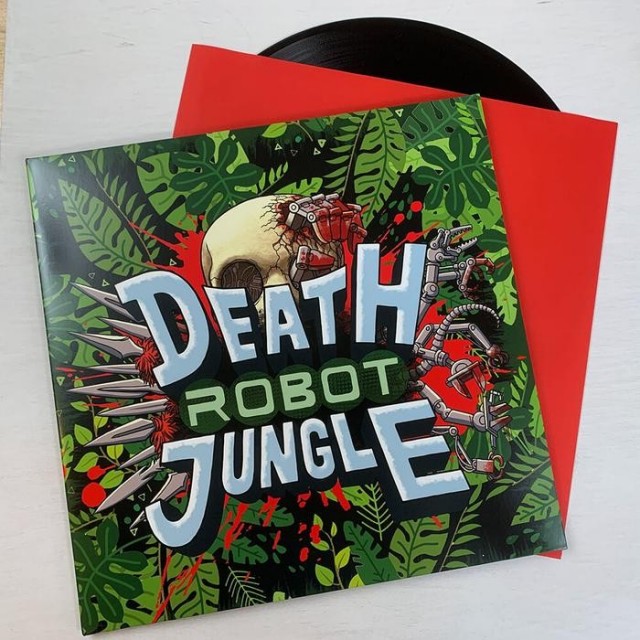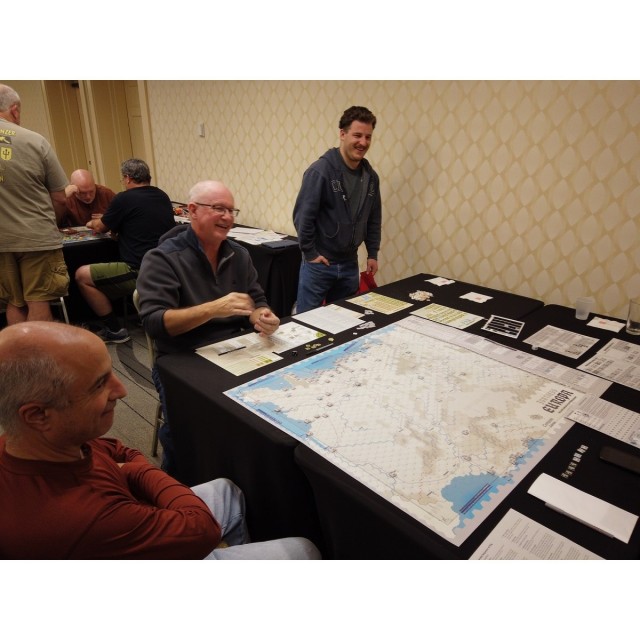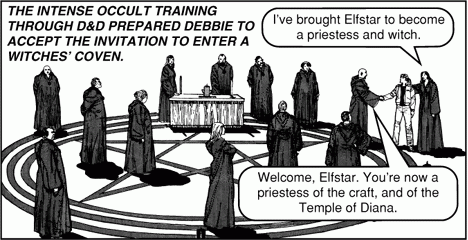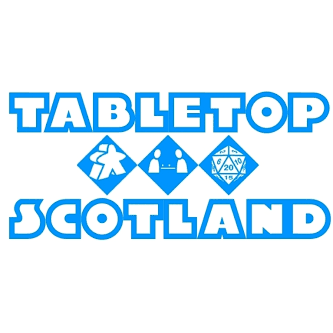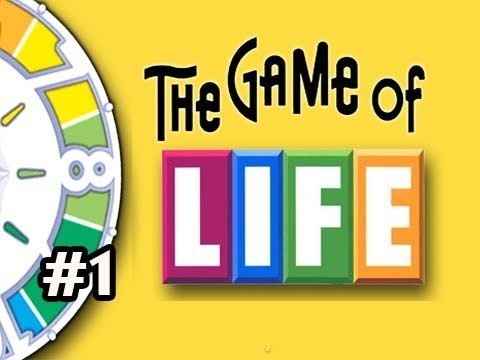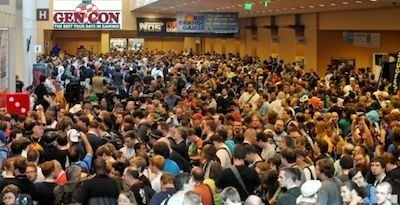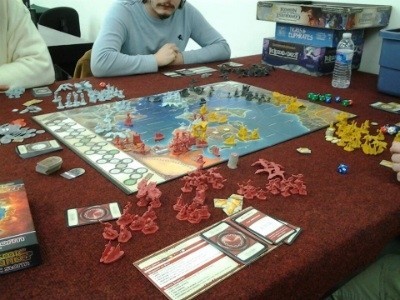Boardgaming has a steadily expanding secondary hobby. Compulsive collecting of games, obsessive thrifting, bell curving your ratings, recording and manipulating statistics, and talking about games on the internet is getting to be a hobby in and of itself, totally distinct from actually playing games.
Most hobbies have a primary activity and a number of peripheral or secondary activities. Miniatures games are a great example, because the hobby activities are often more fun than the poorly designed games. I have spent more hours painting minis, reading novels and rulebooks, dreaming up army lists, and discussing tactics than I have spent actually playing warhammer 40K over the last year. Another example is the travel hobby. My wife loves to travel, and she spends far more time planning, researching, and talking about it than we actually spend traveling. The same goes for many hobbies. With the advent of FoodTV and internet blogs, even cooking has secondary activities.
These secondary activities are great because they make the time you actually spend doing the primary activity a lot more fulfilling. However, some of board gaming's secondary activities aren't so much preparation for gaming as they are something done completely for their own sake. It also seems like these secondary activities are constantly becoming a bigger part of the hobby for many people, while actually playing the games is being pushed to the side.

The sky is not falling
I don't want to sound like the crazy guy with the sign on the street corner. I don't think the end of board gaming is in sight, or anything like that.
But, the extent to which our hobby is beginning to be dominated by non-game-playing activities is a disturbing trend. The number of posts and threads online that begin with "I haven't played it, but" seem to be increasing all the time. Better yet, you get people arguing about games, and when someone points out their argument is based on a falsehood, they admit they've never even played the game they are arguing about. There are as many discussions about what you have collected as about what you have played. Look at what I found at the thrift store is just as common as listen to the story from game night. Don't even get me started on shilling and game hyping. Discussing the new game that you haven't played yet but you hear is incredible. Heck, I read a geeklist last week where some guy recorded what he was doing every single minute fof the gathering so he could do a stats geeklist. I could go on and on..... but you get the idea. The secondary aspects of our hobby are, at least in a certain segment of the gamer populace, overshadowing the actual playing of games.
So who cares?
A lot of you might be thinking, "who cares?" If you don't play games with these people, what they do in their spare time doesn't really effect you. Why should you care? Let me tell you why: Because the people who engage in the secondary activities, like writing reviews, hyping games, recording their five and dimes, etc. etc. are a vocal minority on the internet, and it is a vocal minority that drives the industry. Publishers and sales are driven by people who, in some cases, haven't even played the games, and when they do play, they play a game once, declare it "elegant" and put it back on the shelf, never to be touched again. These are the people driving the industry; gaming pod people.
The internet opinion makers, even the people that do nothing but rate games, have a huge effect on what publishers and designers do. Occasionally you see a publisher or designer come to the internet themselves in response to what people are saying about their games. A lot of that discussion is useful and respectful (like the posts from the design team of Age of Conan on this site) but a lot of it isn't. When you look at euro-style games whose sales figures were driven initially by hype and high ratings, publishers and designers have come down pretty hard on people who (even jokingly) rated their games low. Some of that discussion has been neither useful nor respectful, some of it has crossed over from mere overreaction into publishers publically chiding people who don't rate their game highly. Why would a publisher care? If their game is good, word is going to get out and people are going to buy it, regardless of a few errant joke 1 ratings. So why do publishers react so strongly to that type of thing?
Because hype drives this industry. A low rating is a death knell, and your game will NOT be a big hit in the eurogame market without a good hype engine and/or a solid rating. The sad thing is, it isn't about whether you played a game and liked it, it is about whether or not you "know" you will like a game because of what you read, what you heard about it, and what it is rated by others. Rate it a 10 now, buy it later, and maybe even play it someday, though that isn't necessary.
Its the Market
When a market is being driven not by consumers of the products but by non-consumers or people that are using the products for something other than their intended use, the real consumers are the ones injured as the products themselves slowly change to cater to people that barely even use them. Over the last five years or so, as these secondary activities have become more and more popular, games have become simpler, shorter, and less heavily themed because that is what publishers and designers think the gamers want. The same tired mechanics get cloned again and again. Look back at some of the previous articles written on this site on the direction of the gaming industry. Here for example, Matt Thrower has an excellent article on how the eurogame phenomenon is driving the market to do strange things.
One superb example is the eurogame hit of the week, A Castle for All Seasons. Worker placement mechanic? check. Role selection? check. Short easy rules? check. Plays in an hour? check. Abstract with pasted on medieval castle theme? check. Total absense of replayability? check. Worthless piece of shit? check. This is what publishers think will sell, and maybe these games do sell. I can tell you that no one that has two brain cells to rub together thinks this is an interesting game, especially since the design style has been done to death over the last few years, but this is what publishers think we want.
Like it or not, the direction of the board game industry is being driven in part by the secondary activities and the vocal minority that spends far more time printing tuckboxes than they do playing games. Things won't change until people speak up and say, more settlers, less pillars please. So long as the gamer pod people are driving the decisions of publishers and designers, you can bet your final meeple placement that we are going to see more derivative garbage on the market.
 Games
Games How to resolve AdBlock issue?
How to resolve AdBlock issue? 